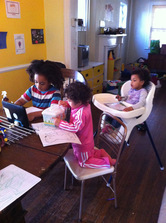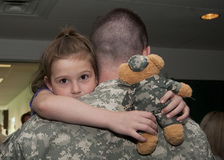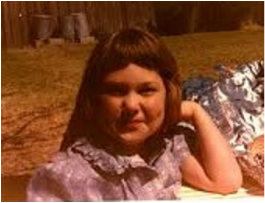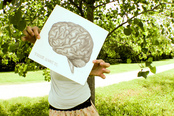 To all the Daddies, up at night with the little one while Mama gets some sleep.... To all the Mamas, taking their kids to school, sports, classes, and therapies.... For every Mom and Dad helping their kid with a late homework project the night before it's due.... To all of the Parents, bravely navigating the special education system to be the best advocate they can for their child.... Don't forget that you know your child better than anyone else. Your goals and dreams for your child go beyond the classroom door and are stored deeply in your heart. You are the key to your child's success! YOU ARE A TRUE SUPER HERO! Thanks for what you do.
0 Comments
 Homeschooling has become increasingly popular over the past decade as families find that traditional classrooms are not the best option for their family or child. At the same time, this decision should not be taken lightly. Below are five things to consider before deciding to home-school your child. Do you feel comfortable home-schooling? While we all have to do some things that we are not comfortable with, the goal with home-schooling is to give our child something better than they would receive at a traditional school. Because of this, the person doing the home-schooling needs to feel comfortable and capable in their role. One way to ensure this is to make sure that the curriculum you choose is the right one for you. More about curriculum choice in another post! Do you have a consistent schedule?-While home-schooling does have its flexibility, a predictable, consistent schedule is needed in order to ensure that learning is accomplished. If your life is already hectic and crazy, a different school option might be better. What is the home-school law in your state?-In my state, Texas, home-school law is very simple. Basically, parents are allowed to choose any curriculum, aren't accountable to anyone but themselves, and can easily transition their child to a college setting with the right grades and SAT/ACT scores. Different states maintain different levels of control that might affect your decision. What social activities are available to your child outside of school? One concern that is brought up often regarding home-schooling involves whether a child will get enough social interaction. I find, that some kids, particularly when there are both social and academic challenges, actually benefit from being challenged academically outside of a social setting and vice versa so that they can put their attention and focus on one area of difficulty at a time. Many cities have active home-school co-ops where kids can go weekly or bi-weekly to take elective classes with other home-scholars, or go on field trips. There are also many sports leagues that can be accessed by families that home-school as well as scouts and arts programs. Some states and school districts allow home-scholars to still access extra curricular resources at public schools. Can the Parent/Child also be the Teacher/Student?- This can be a learned skill, but the relationship between a parent and child is different than that of a teacher and student. Parents that home-school often need to forge a different relationship with their child in order to make it work. If done right, this can be a very rewarding experience for both!  On the morning of September 11, 2001 I was in my first month of student teaching. I was doing the opening "ceremony" before a class of first graders. We looked at the calendar, read the new words on the word wall, and talked about the weather. As I was in mid-sentence, my supervising teacher ducked her head in to say that a plane had hit the World Trade Center in New York. The reality of this tragedy didn't take hold for me until the children had been dropped off at their P.E. class and we caught a live broadcast just as the second plane hit the tower. The children went about the rest of their day oblivious to what had happened. The teachers, however, were all too aware of what was going to happen next. This was a town with a high-profile air base. Many students were children of airmen. I recall, specifically, looking at little Mattie. She was a happy little girl, all smiles and curls. She came to me the next day, with something in her eyes that was deeper than the wide-eyed awe and confusion that many of the children had returned with. She new her father would be leaving soon. As the weeks went on and the halls became draped with giant hand-print American flags and artwork depicting the burning towers, Mattie decided that she would show her patriotism and love for her father by wearing a small American Flag pin made out of safety pins and beads. One day I came in, after shadowing kids at recess, to find Mattie in tears. She had lost her pin. She had shown very little sadness and only talked about her father with pride, never that she missed him. At that moment, though, I knew that she was not crying over her pin. She was crying because we missed her father, her hero, her daddy. On this Memorial Day, lets recognize the sacrifice of those that have died in combat for our country, but lets also recognize those in the military who lose time with their loved ones while in service. Finally, lets recognize the sacrifice of children who lose months and years with a parent so that we can live in a free and prosperous land. They give us a beautiful gift.  "You will never be able to read", I heard my teacher say under her breath as I walked back to my desk. I was nearing the end of my first grade year. Those seven little words lit a spark somewhere deep in my psyche, that continues to burn even today. In many ways, I am thankful for that careless, hurtful statement because in the long run it made such a positive impact in my life. I didn't realize it at the time, but my mother was my biggest champion. She recognized that school was more difficult than it should have been. I had, after all, been playing the violin since I was three, loved to draw and build with Legos and enjoyed listening to people read books. I knew and remembered facts and information, but school was still a struggle. I had trouble remembering math facts, I couldn't remember how to borrow or carry, and word problems were baffling. I could read, but stumbled through the sentences, skipping words, and missed the meaning of what I read and my handwriting was terrible. My mother advocated for me in the schools, when the school refused to test me for special education, she had a private assessment done. The test, among other revelations, showed that I could read words on a middle-school level, but still struggled through written paragraphs. Her willingness to get an outside assessment for me, convinced the school district to do their own assessment. By 2nd grade I was pulled out for resource for 1-2 hours a day. I had fantastic teachers who addressed my learning needs using individualized teaching methods. They were innovative and intuitive. I still use some of their teaching methods today with my own clients! After 3 years in a special education, resource classroom, a year in second grade and 2 years in 3rd, I was mainstreamed back into a general education class. Though I continued to have to work for every A and B that I got, I was a successful and independent learner. That success and independence carried me through my bachelors degree in special education, a masters in human development, and an educational diagnostician certificate. If you are your child's biggest advocate, if you see the struggles, but also see the potential, I applaud you and thank you. You don't have an easy job, but the rewards can be great! It is because of my own experiences and the determination of my mother that I now have a passion for helping families that are looking for educational solutions for their children. In every child, I see a bit of myself, in every parent, I see a bit of my warrior mom. Thanks for allowing me to be a part of your mission! |
AuthorLisa works with families who are looking for educational solutions for their children. She has provided services to families in the DFW area for over 10 years. Archives
October 2019
Categories |

 RSS Feed
RSS Feed